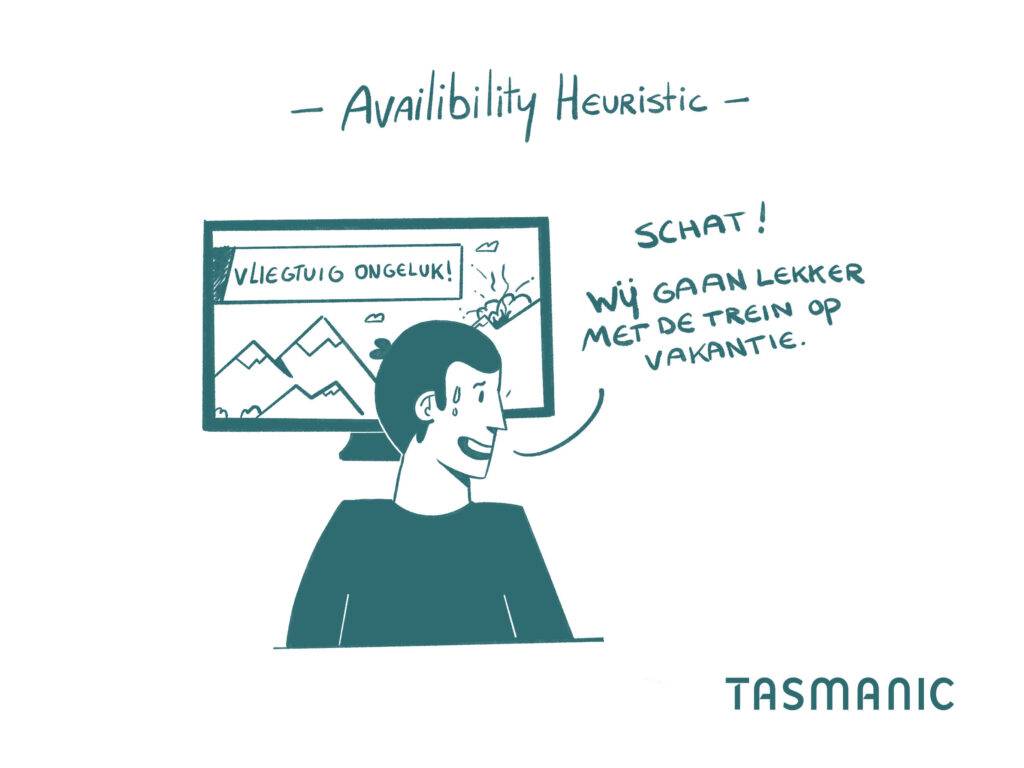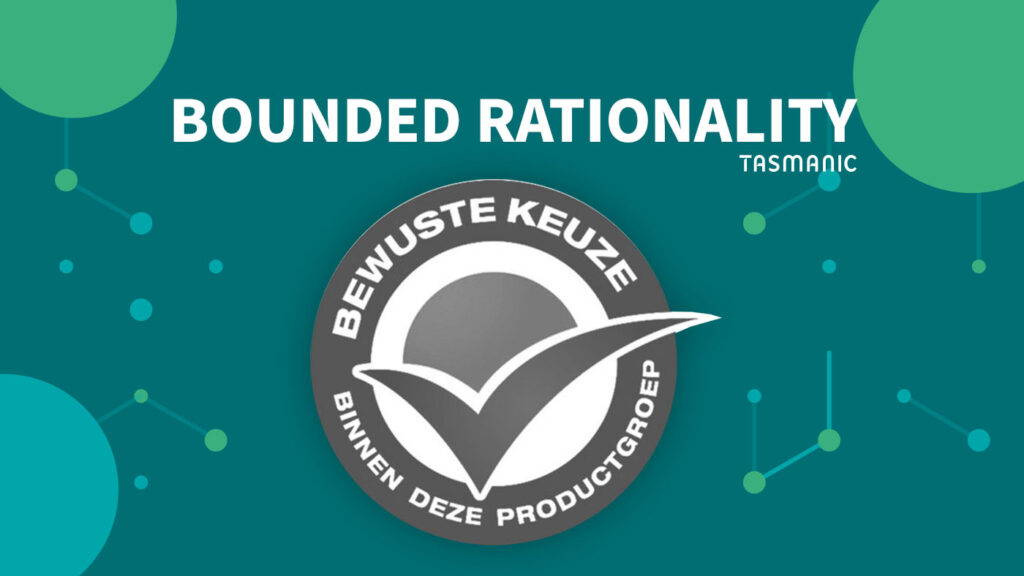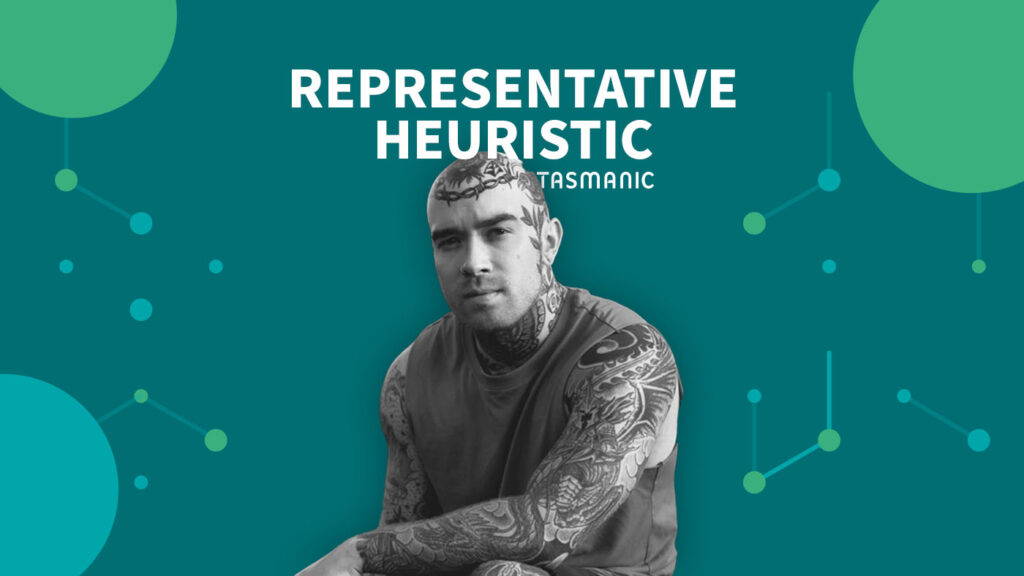
Last updated December 19, 2024
The availability heuristic, also called availability bias or availability heuristic, is a mental fallacy caused by the way the brain works. What you hear a lot about is at the top of the pile, so to speak, making it easier to recall. The brain then incorrectly assumes that something you can easily recall is likely to be common. This colors your expectations for the future, and any predictions you try to make.
What is the availability heuristic?
The availability heuristic is a bias first described by Amos Tversky and Daniel Kahneman's in 1973. They defined it as follows:
Whenever [one] estimates frequency or probability by the ease with which instances or associations could be brought to mind.
Let's look at an example for clarification. For example, what do you think is causing more people to die each year?
- Accidents in traffic
- Accidents on the stairs in the home
Most people expect more people to die in traffic every year. Yet every year in the Netherlands, some 4,000 people die from falling down stairs. And only 500 in traffic. That you estimate this differently has to do with availability in the brain.
More often in the news
The news and the media in general have a lot of influence on availability in our brain. If someone falls down the stairs and dies, it doesn't normally make the news. Traffic accidents often do.
That means the brain remembers more easily that you heard, saw or read something about a traffic accident than about someone falling down the stairs. And that you remember that more easily, the brain then translates that into the expectation that it is more likely to happen.

Why does it happen?
Our brains want to complete routine tasks as easily as possible, without using too much energy. In decisions involving probability, it looks for shortcuts because statistics is hard work. That's why it uses memories that it can easily recall as predictors. These are things that you see often, that caused an emotional reaction or that fit exactly into our worldview.
Preventing you from falling into the availability heuristic
As with any bias, it is impossible to shut yourself off from it 100%. After all, our brains have to make a lot of decisions every day, and they can't all be well thought out, you'll go crazy. If a decision really matters, there are some things you can do to make a better decision:
- Make sure you consciously think about the decision or assessment. By doing so, you activate system 2 thinking.
- Let someone else contribute thoughts or assessments. Someone else never has the exact same environment and memories. But note that if you live in the same neighborhood, don't estimate together the market shares of car brands. Then you probably overestimate the brands that are overrepresented in your neighborhood. For this you look for data.
- Collect data instead of relying on your feelings or environment. For example: if you think 'there must be a demand for this' try to collect data that supports this. For example, from CBS, industry associations, etc. For example, we offer online proof of concept to test whether there is demand for a certain solution.
Using the availability heuristic to your advantage
As an entrepreneur, it is important to be aware of the fact that 99% of your target audience does not know that they are susceptible to this type of thinking error. You can take advantage of this by making sure that your business is on top of the pile, making you the logical choice.
- If people are actively looking for your product or service themselves, you need to be visible. There are only 4 ads at the top, you have to be 1 of them to be available (Google Ads).
- Make sure website visitors come across your message several more times (remarketing).
- If you are a local entrepreneur: sponsor the local sports club, advertise in the local door-to-door newspaper, organize a local event, etc. Residents will think they see you everywhere, but 20km away it is very different.
Resources
Schwarz, Norbert; Bless, Herbert; Strack, Fritz; Klumpp, Gisela; Rittenauer-Schatka, Helga; Simons, Annette (1991). "Ease of retrieval as information: Another look at the availability heuristic." Journal of Personality and Social Psychology. 61 (2): 195-202. doi:10.1037/0022-3514.61.2.195.
Tversky, Amos; Kahneman, Daniel (1973). "Availability: A heuristic for judging frequency and probability," Cognitive Psychology. 5 (2): 207-232. doi:10.1016/0010-0285(73)90033-9. ISSN 0010-0285.
Is your company missing opportunities?
Our pay is based on your results.

















 Team
Team FAQ
FAQ Vacancies
Vacancies Contac
Contac AWR
AWR Ahrefs
Ahrefs Channable
Channable ContentKing
ContentKing Leadinfo
Leadinfo Optmyzr
Optmyzr Qooqie
Qooqie Hubspo
Hubspo Semrush
Semrush




